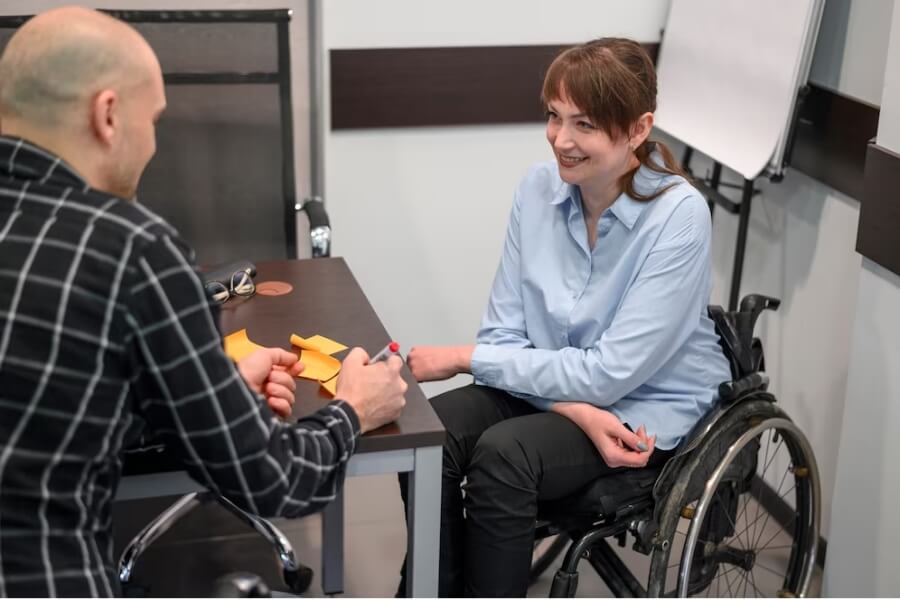
Mild cognitive impairment causes cognitive changes that are serious enough to be noticed by the individuals experiencing them or to other people, but the changes are not severe enough to interfere with daily life or independent function.
Because the changes caused by MCI are not severe enough to affect daily life, a person with MCI does not meet diagnostic guidelines for dementia. However, those with MCI have an increased risk of eventually developing Alzheimer’s or another type of dementia. However, not all people with MCI get worse and some eventually get better.
Symptoms
Experts classify Mild cognitive impairment based on the thinking skills affected:
- MCI that primarily affects memory is known as “amnestic MCI.”With amnestic MCI, a person may start to forget important information that he or she would previously have recalled easily, such as appointments, conversations or recent events.
- MCI that affects thinking skills other than memory is known as “nonamnestic MCI.” Thinking skills that may be affected by nonamnestic MCI include the ability to make sound decisions, judge the time or sequence of steps needed to complete a complex task, or visual perception.
Diagnosis
Mild cognitive impairment is a “clinical” diagnosis representing a doctor’s best professional judgment about the reason for a person’s symptoms. There are currently no tests or procedures to demonstrate conclusively that a person has MCI. It’s also not yet possible to determine the underlying cause of MCI in a specific person.
A medical workup for MCI includes the following core elements:
- Thorough medical history, where the physician documents current symptoms, previous illnesses and medical conditions, and any family history of significant memory problems or dementia.
- Assessment of independent function and daily activities, which focuses on any changes from a person’s usual level of function.
- Input from a family member or trusted friend to provide additional perspective on how function may have changed.
- Assessment of mental status using brief tests designed to evaluate memory, planning, judgment, ability to understand visual information and other key thinking skills.
- In-office neurological examination to assess the function of nerves and reflexes, movement, coordination, balance and senses.
- Evaluation of mood to detect depression; symptoms may include problems with memory or feeling “foggy.” Depression is widespread and may be especially common in older adults.
- Laboratory tests including blood tests and imaging of the brain’s structure.
If the workup doesn’t create a clear clinical picture, the doctor may recommend neuropsychological testing, which involves a series of written or computerized tests to evaluate specific thinking skills.
Causes and risks
The causes of mild cognitive impairment are not yet completely understood. Experts believe that many cases — but not all — result from brain changes occurring in the very early stages of Alzheimer’s disease or other dementias.
The risk factors most strongly linked to MCI are the same as those for dementia: advancing age, family history of Alzheimer’s or another dementia, and conditions that raise risk for cardiovascular disease.
Treatment and outcomes
No medications are currently approved by the U.S. Food and Drug Administration (FDA) to treat mild cognitive impairment. Drugs approved to treat symptoms of Alzheimer’s disease have not shown any lasting benefit in delaying or preventing progression of MCI to dementia.
The following coping strategies may be helpful for those with MCI. Some studies suggest that these strategies may help slow decline in thinking skills, although more research is needed to confirm their effect.
- Exercise on a regular basis to benefit your heart and blood vessels, including those that nourish your brain.
- Control cardiovascular risk factors to protect your heart and blood vessels, including those that support brain function.
- Participate in mentally stimulating and socially engaging activities, which may help sustain brain function.
Experts recommend that a person diagnosed with MCI be re-evaluated every six months to determine if symptoms are staying the same, improving or growing worse.
MCI increases the risk of later developing dementia, but some people with MCI never get worse. Others with MCI later have test results that return to normal for their age and education.
It’s not yet possible to tell for certain what the outcome of MCI will be for a specific person or to determine the underlying cause of MCI from a person’s symptoms.
Researchers hope to increase the power to predict MCI outcomes by developing new diagnostic tools to identify and measure underlying brain changes linked to specific types of dementia. Stay informed about research investigating MCI, Alzheimer’s and related dementias.
Reference: Alzheimer’s Association. http://www.alz.org/dementia/mild-cognitive-impairment-mci.asp